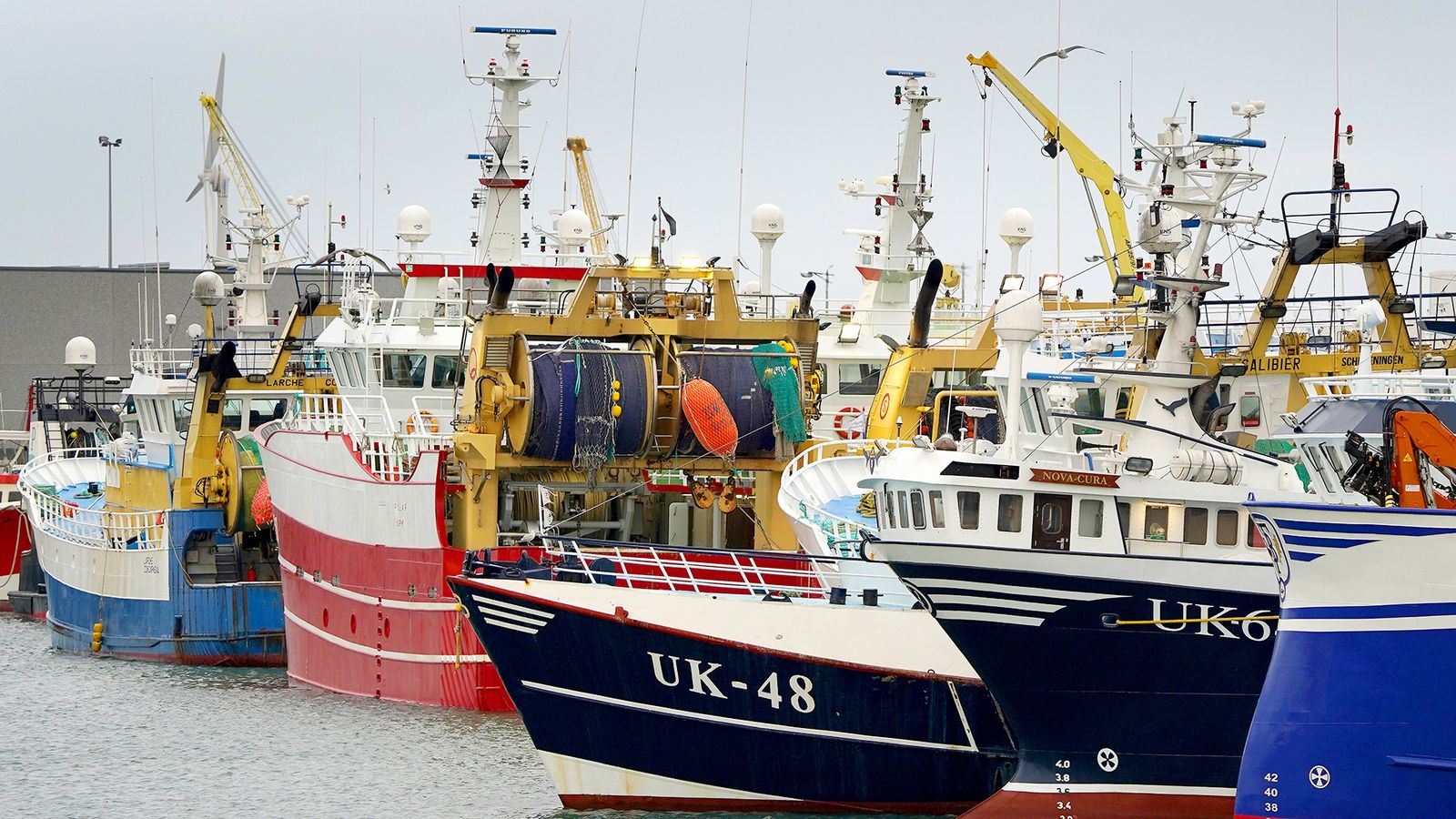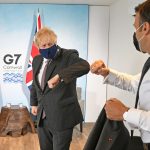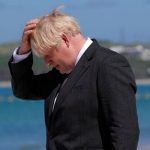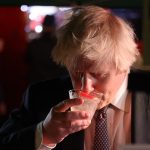The UK’s Brexit minister has threatened to retaliate in the escalating fishing row with France with “practical responses”.
Lord Frost said he made clear to EU Brexit negotiator Maros Sefcovic if France carried through with threats to disrupt fisheries and hauliers next week the UK would react “accordingly”, in both physical and legal ways.
The pair were holding talks in London about the Northern Ireland Protocol but the row over licences for French boats to fish in UK waters dominated as it took a turn for the worse yesterday when France seized a British scallop trawler and today charged its captain.
If the UK does not grant licences for 55 French vessels, France has said from next Tuesday it will block its ports, carry out security checks on British vessels, reinforce controls of lorries to and from the UK, reinforce customs and hygiene controls, and raise tariffs.
There has also been a threat of halting electricity to the Channel Islands, which are British dependencies but are close to the French coast.
A UK government spokesman said Lord Frost “made clear” to Mr Sefcovic if those threats are carried out the EU would be in breach of the trade and co-operation agreement (TCA) between the UK and the bloc.
He added: “The government is accordingly considering the possibility, in those circumstances, of launching dispute settlement proceedings under the TCA, and of other practical responses, including implementing rigorous enforcement processes and checks on EU fishing activity in UK territorial waters, within the terms of the TCA.”
EU summit: Poland told to ‘respect the rules’ of the club in rule-of-law row
Saving sausages – Brexit and the Northern Ireland Protocol
Brexit minister Lord Frost demands ‘intensive talks process’ with EU over Northern Ireland Protocol
Earlier, environment minister George Eustice told Sky News the UK has issued post-Brexit licences to 1,700 vessels, including 750 French fishing boats, which amounts to 98% of applicants.
He said the remaining 55 vessels, despite the UK trying to help them with the data, could not prove they had fished in Jersey’s waters previously so could not get a licence under the trade and co-operation agreement with the EU.






















